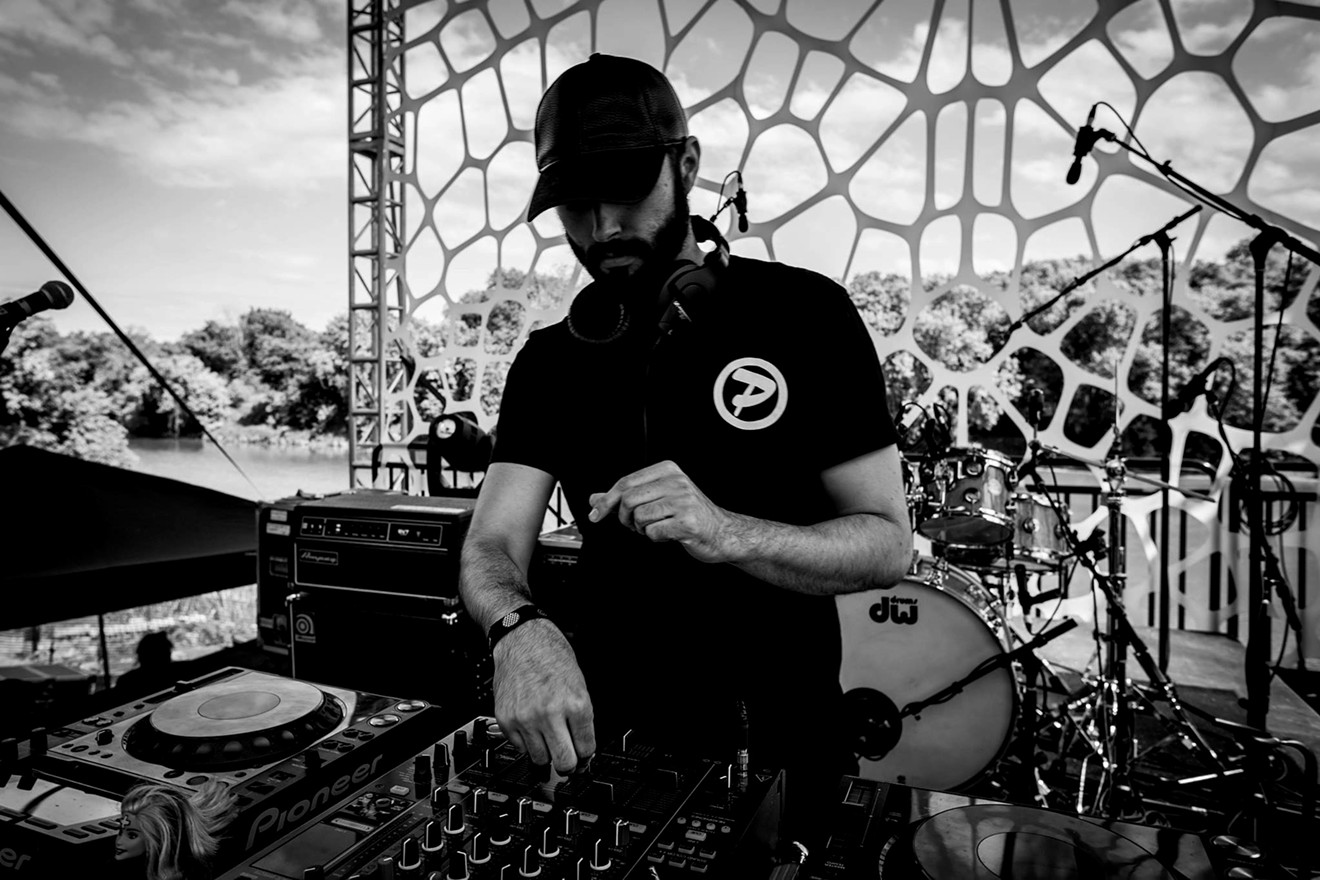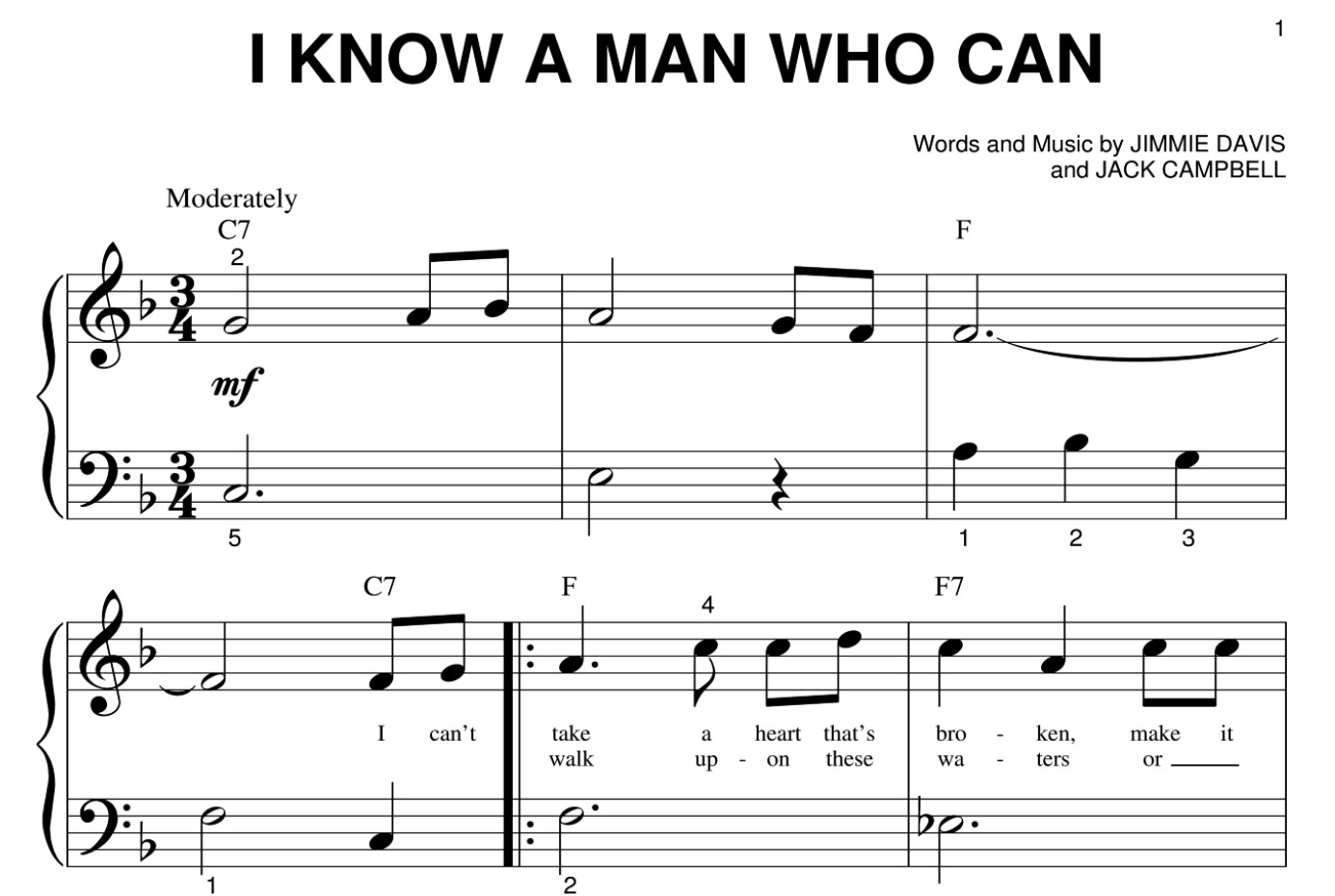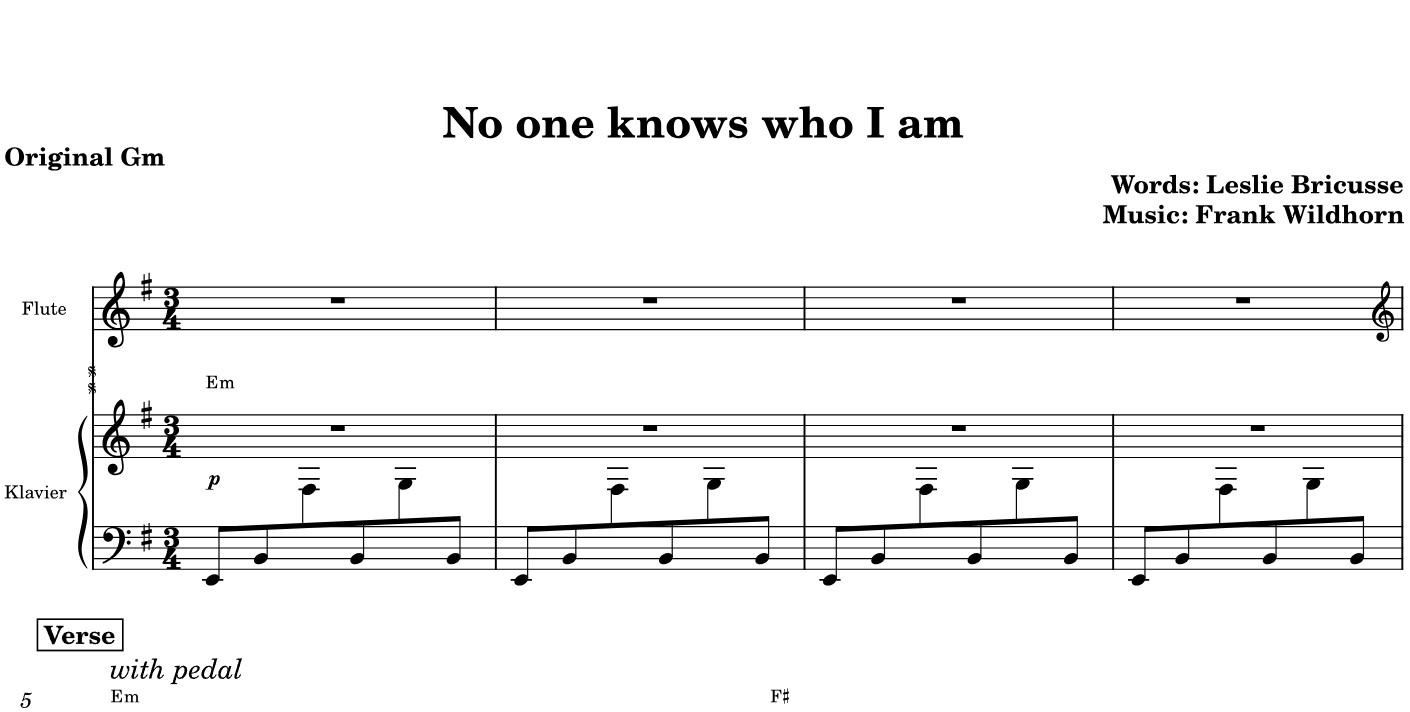Home>Production & Technology>Music Theory>EDM DJ’s Who Know Music Theory


Music Theory
EDM DJ’s Who Know Music Theory
Modified: March 5, 2024
Discover the top EDM DJ's who have mastered the art of music theory, taking their productions to a whole new level. Gain insights into their innovative techniques and unique musical compositions.
(Many of the links in this article redirect to a specific reviewed product. Your purchase of these products through affiliate links helps to generate commission for AudioLover.com, at no extra cost. Learn more)
Table of Contents
Introduction
The world of Electronic Dance Music (EDM) is known for its pulsating beats, infectious melodies, and energetic performances. Behind the decks, EDM DJs are responsible for creating an electrifying atmosphere and captivating the crowd. While many may perceive EDM DJs as purely focused on the technical aspects of mixing and production, there is a growing number of artists who possess a deep understanding of music theory.
Music theory is the study of the fundamental elements that make up music, including scales, chords, rhythm, and harmony. It provides a framework for understanding how different musical elements interact and create the unique sounds we hear. While it may seem odd to associate music theory with an often high-energy and fast-paced genre like EDM, it plays a crucial role in shaping the music and elevating the production quality.
EDM DJs who have a strong foundation in music theory possess a deeper understanding of the music they create. This knowledge empowers them to craft more intricate melodies, harmonies, and chord progressions, resulting in tracks that resonate with listeners on a deeper level. Additionally, it allows them to experiment with unconventional musical techniques, creating innovative sounds and pushing the boundaries of the genre.
In this article, we will explore some EDM DJs who not only excel in their technical skills but also demonstrate a solid grasp of music theory. These artists go beyond the surface-level understanding of EDM production, showcasing their mastery of composing and arranging music. From melodic and harmonic complexities to experimental sonic landscapes, their music stands out with its depth and complexity.
So, let’s dive into the fascinating world of EDM and how music theory influences the artistry of these talented DJs.
The Importance of Music Theory in EDM
Music theory is often associated with classical music or more traditional genres, but its relevance extends far beyond those realms. In the world of EDM, music theory serves as a powerful tool that empowers DJs to create captivating and memorable tracks. Here are a few reasons why music theory is important in the context of EDM:
- Crafting Melodies: Melodies are the heart and soul of any musical composition, and EDM is no exception. Music theory equips DJs with the knowledge of scales, intervals, and melodic structures, allowing them to craft catchy and emotive melodies.
- Building Harmonies: Harmonies add depth and richness to EDM tracks. By understanding chord progressions, consonance, and dissonance, DJs can create harmonies that enhance the overall sonic experience and evoke specific emotions.
- Creating Unique Chord Progressions: EDM DJs who are well-versed in music theory can break away from traditional chord progressions and experiment with unique harmonic sequences. This enables them to create interesting and innovative musical arrangements that set their tracks apart.
- Maintaining Rhythmic Consistency: EDM relies heavily on powerful and energetic rhythms. A solid understanding of music theory aids DJs in creating rhythmic patterns that are tight, precise, and drive the energy of the track.
- Exploring Sound Design: EDM pushes the boundaries of sound design, and music theory provides a foundation for exploring complex soundscapes. DJs with a strong grasp of music theory can experiment with different timbres, textures, and synth parameters, elevating the sonic experience for the listener.
While creativity and experimentation are essential in EDM, having a strong foundation in music theory allows DJs to make educated musical choices. It provides them with the tools to effectively communicate their ideas and produce music that resonates with their audience.
Moreover, an understanding of music theory enables EDM DJs to collaborate with other musicians and producers more effectively. It allows for smoother communication and enhances the cohesion of collaborative projects.
Overall, music theory in EDM is not about confining creativity within a rigid framework but rather about expanding possibilities. It provides a language and a set of principles that DJs can utilize to push the boundaries of the genre while maintaining a strong musical foundation.
EDM DJs Who Utilize Music Theory
While technical skills and stage presence are undoubtedly important for EDM DJs, there are a select few who stand out for their deep understanding and utilization of music theory. These artists seamlessly blend their technical prowess with their knowledge of music theory, resulting in tracks that go beyond the surface-level bangers. Let’s take a closer look at some EDM DJs who showcase their expertise in music theory:
-
Martin Garrix
Martin Garrix is not only known for his electrifying performances and chart-topping hits but also for his impressive musicality. Despite his young age, Garrix demonstrates a sound understanding of music theory, particularly in his melodic compositions. His tracks often feature intricate melodies, well-crafted chord progressions, and harmonic variations that elevate his music to a more sophisticated level.
-
Deadmau5
Deadmau5, known for his experimental and innovative approach to EDM, is a prime example of an artist who harnesses the power of music theory. His tracks incorporate complex harmonic structures, unconventional chord progressions, and unique sound design elements. Deadmau5’s knowledge of music theory enables him to create mesmerizing sonic journeys that captivate his listeners on a profound level.
-
Alan Walker
Alan Walker’s signature sound blends the catchy melodies of EDM with a touch of cinematic grandeur. Walker’s compositions feature emotive chord progressions, well-crafted melodies, and intricate arrangements that showcase his understanding of music theory. His tracks evoke strong emotions and demonstrate the power of using music theory as a tool of expression in EDM.
-
Seven Lions
Seven Lions is widely recognized for his ability to seamlessly blend various genres, creating a unique sound that transcends traditional EDM boundaries. His tracks often incorporate melodic dubstep and trance elements, showcasing his understanding of harmonies and compositional techniques. Seven Lions’ music stands out for its complex melodic structures and fusion of different musical styles.
-
Zedd
Zedd has a background in classical music, and it shows in his EDM productions. His tracks are characterized by intricate melodies, lush chord progressions, and meticulous attention to detail. Zedd’s command of music theory allows him to create vibrant and dynamic compositions, pushing the boundaries of EDM and infusing his music with a unique flair.
These EDM DJs are just a few examples of artists who prioritize and utilize the principles of music theory in their productions. Their profound understanding of music theory enables them to create tracks that resonate with their listeners on a deeper level, transcending the boundaries of traditional EDM and pushing the genre forward.
By incorporating music theory into their creative process, these DJs have not only elevated their own artistry but have also contributed to the evolution and diversification of the EDM genre. They serve as an inspiration for aspiring DJs to deepen their understanding of music theory and explore the endless possibilities it offers in the world of electronic dance music.
Martin Garrix
Martin Garrix, a Dutch DJ and producer, has risen to prominence in the EDM scene with his infectious energy and masterful productions. What sets Garrix apart is not just his stage presence but also his deep understanding and application of music theory in his tracks.
At a young age, Martin Garrix showed prodigious talent and quickly honed his skills as a musician and producer. His tracks are known for their catchy melodies and uplifting vibes, which can be attributed to his solid grasp of music theory.
One of Garrix’s standout qualities is his ability to craft intricate melodies that resonate with a wide audience. His tracks often feature memorable hooks and soaring melodies that get stuck in your head. This is a testament to his understanding of how different notes and scales interact, allowing him to create melodies that evoke a range of emotions.
In addition to his melodic prowess, Garrix shows a strong command of chord progressions. He effortlessly combines different chords, creating harmonies that add depth and complexity to his tracks. By experimenting with various harmonic structures, he is able to deliver powerful drops and impactful moments in his music.
Garrix’s attention to detail extends beyond melodies and harmonies. He also showcases his knowledge of rhythm and groove, using syncopation and well-placed percussion to inject energy into his tracks. His tracks often have a solid foundation and precise rhythm that keeps the audience moving on the dancefloor.
Furthermore, Garrix’s use of music theory enables him to seamlessly blend different genres and styles. He effortlessly incorporates elements of pop, progressive house, and electronic music into his productions, creating a unique and recognizable sound. By understanding music theory at a deep level, Garrix is able to navigate the intricacies of genre blending and create cohesive tracks that appeal to a wide range of listeners.
As Martin Garrix continues to push the boundaries of EDM, his intricate melodies, harmonies, and rhythmic intricacies serve as a testament to his solid understanding and usage of music theory. He showcases the power and impact that a strong foundation in music theory can have on the creative process in EDM.
By incorporating music theory into his workflow, Martin Garrix has established himself as a true music connoisseur and an inspiration for aspiring EDM DJs and producers who are looking to take their craft to the next level.
Deadmau5
Deadmau5, the Canadian electronic music producer and performer, is widely recognized for his innovative and boundary-pushing approach to EDM. His meticulous attention to detail and experimental soundscapes are a testament to his deep understanding and utilization of music theory.
Deadmau5’s tracks are known for their unique and intricate compositions, which can be attributed to his extensive knowledge of music theory. He skillfully combines unconventional chord progressions, complex harmonies, and sonic textures to create a mesmerizing musical experience.
One of Deadmau5’s signature techniques is his mastery of harmonic structures. He ventures beyond traditional chord progressions, exploring dissonance and tension to create a sense of intrigue and depth in his music. This experimental approach combined with his knowledge of music theory allows him to push the boundaries of EDM and create tracks that are both musically innovative and emotionally captivating.
In addition to his harmonic expertise, Deadmau5 demonstrates a strong command of rhythm and groove. His tracks often feature intricate and syncopated rhythms that keep the listener engaged and energized. By utilizing complex rhythmic patterns, he adds layers of texture and complexity to his music, elevating it beyond simple beats.
Moreover, Deadmau5’s sound design abilities set him apart in the EDM landscape. His knowledge of music theory allows him to carefully craft and manipulate sounds, creating unique soundscapes that transport listeners into captivating sonic worlds. He expertly controls elements such as timbre, resonance, and modulation to add depth and intricacy to his tracks.
Deadmau5’s use of music theory goes beyond the creation of individual tracks. He also showcases his understanding of musical structures by seamlessly blending different sections and motifs throughout his albums and live performances. His ability to create cohesive and thematic musical journeys speaks to his mastery of music theory and composition.
By incorporating music theory into his creative process, Deadmau5 has solidified himself as a true pioneer in the EDM genre. His intricate compositions, complex harmonic structures, and experimental sound design demonstrate the power of utilizing a strong foundation in music theory to push the boundaries of electronic music.
Aspiring EDM artists can look to Deadmau5 as an inspiration to dive deeper into music theory and explore the endless possibilities it offers for creating unique and groundbreaking tracks. Deadmau5’s influential presence and musical expertise continue to shape and redefine the landscape of modern electronic music.
Alan Walker
Alan Walker, the Norwegian EDM producer and DJ, has gained global recognition for his distinctive sound and captivating melodies. His ability to create emotive tracks can be attributed to his deep understanding and utilization of music theory.
Walker’s compositions are characterized by their melodic beauty and atmospheric quality. This can be attributed to his strong grasp of music theory and his ability to craft intricate melodies that resonate with listeners. By drawing on his knowledge of scales, intervals, and chord progressions, Walker creates captivating melodies that evoke a wide range of emotions.
Walker’s expertise in music theory is evident not only in his melodies but also in his command of harmonies. His tracks often feature well-crafted chord progressions and harmonizations that enhance the overall sonic experience. By skillfully blending various chords, Walker creates harmonies that add depth and complexity to his music, elevating it beyond simple electronic beats.
In addition to his melodic and harmonic prowess, Walker’s understanding of music theory allows him to experiment with different musical techniques. He blends elements of EDM, pop, and cinematic music, resulting in a unique and hybrid sound. His ability to seamlessly incorporate different musical styles into his compositions showcases his versatility and speaks to his musical proficiency.
Furthermore, Walker’s use of music theory extends to his arrangements and production techniques. He carefully structures his tracks, creating dynamic builds and drops that enhance the emotional impact of his music. By understanding the principles of music theory, Walker is able to build tension, create climactic moments, and deliver powerful and memorable musical experiences.
Walker’s dedication to music theory is not limited to his studio work. In his live performances, he seamlessly integrates his intricate melodies and harmonies, ensuring a cohesive and immersive experience for his audiences. His ability to translate complex musical ideas into live performances demonstrates his proficiency as both a producer and a performer.
Alan Walker’s utilization of music theory sets him apart in the EDM scene. His ability to create captivating melodies, intricate harmonies, and experimental arrangements showcases the power and impact of incorporating music theory into the creative process. Aspiring EDM producers can look to Walker as an inspiration to deepen their knowledge of music theory and use it as a tool to elevate their own compositions.
Through his heartfelt and meticulously crafted music, Alan Walker demonstrates that a solid foundation in music theory is an invaluable asset for any EDM artist seeking to create memorable and emotionally engaging tracks.
Seven Lions
Seven Lions, the American EDM producer and DJ, is known for his unique blend of melodic dubstep and trance. His musical style stands out for its complexity and emotional depth, which can be attributed to his deep understanding and utilization of music theory.
One of Seven Lions’ defining qualities is his mastery of melodic composition. His tracks are characterized by intricate melodies that weave seamlessly through the layers of his productions. This can be attributed to his strong grasp of music theory, allowing him to create melodies that are both captivating and emotionally evocative.
Furthermore, Seven Lions showcases his understanding of music theory through his use of harmonies. His tracks often feature lush and harmonically rich moments, creating a sense of grandeur and depth. By skillfully combining different chords and harmonies, Seven Lions creates unique and immersive sonic experiences.
In addition to his melodic and harmonic prowess, Seven Lions displays a keen sense of rhythm and groove. His tracks incorporate intricate and complex rhythmic patterns that keep the listener engaged and captivated. This mastery of rhythm adds an extra layer of energy and drive to his music.
Another aspect where Seven Lions’ knowledge of music theory shines is in his ability to seamlessly blend genres. He effortlessly fuses elements of dubstep, trance, and melodic bass, creating a captivating and genre-bending sound. This versatility showcases his ability to apply his understanding of music theory to bridge different musical styles and create a cohesive and unique sonic experience.
Moreover, Seven Lions showcases his expertise in music theory through his arrangement and production techniques. His songs are meticulously structured, building tension and releasing it in climactic drops. By strategically arranging musical elements, he creates a sense of progression and storytelling within his tracks.
Seven Lions’ use of music theory goes beyond his studio productions. In his live performances, he skillfully translates his rich melodies and harmonies into captivating and dynamic sets. His understanding of music theory allows him to manipulate the energy and emotional impact of his tracks, creating a powerful and immersive experience for his audience.
Through his intricate melodies, harmonies, and genre-blending soundscapes, Seven Lions showcases the power of incorporating music theory into EDM. His ability to harness these elements demonstrates the impact that a deep understanding of music theory can have on the creation of emotionally resonant and captivating music in the EDM genre.
Aspiring producers can look to Seven Lions as an inspiration to explore the possibilities that music theory offers in their own productions. His mastery of melodic composition, harmonies, rhythm, and genre-blending serves as a testament to the creative depth achievable through a solid foundation in music theory.
Zedd
Zedd, the German-Russian EDM producer and DJ, is celebrated for his infectious pop-infused tracks and impeccable production skills. Behind his chart-topping hits lies a deep understanding and skilled application of music theory.
One of Zedd’s standout qualities is his mastery of memorable and catchy melodies. Drawing on his knowledge of music theory, he creates hooks and melodic sequences that resonate with listeners. Through careful selection of notes and scales, Zedd crafts melodies that are instantly recognizable, making his tracks instantly captivating.
Furthermore, Zedd’s skillful use of chord progressions sets him apart in the EDM landscape. His tracks often feature intricate and well-crafted harmonic structures, bringing depth and emotion to his music. By experimenting with different chord voicings and progressions, he creates harmonies that enhance the impact of his compositions.
In addition to his melodic and harmonic prowess, Zedd demonstrates a keen sense of rhythm in his productions. His tracks feature tight and driving beats that keep the listener engaged and moving. With precise rhythmic elements and well-crafted percussion, Zedd creates tracks that are irresistibly danceable.
Zedd’s meticulous attention to detail and his knowledge of music theory also shine through in his sound design. He skillfully manipulates and crafts sounds, creating textures that enhance the overall mood and energy of his tracks. By understanding the principles of music theory, Zedd is able to create innovative and sonically pleasing elements.
Moreover, Zedd’s musical versatility and ability to blend genres are a testament to his understanding of music theory. He seamlessly combines elements of pop, electro, and progressive house, creating a unique and recognizable sound. This ability to bridge different musical styles demonstrates his mastery of music theory and composition.
Not only does Zedd utilize music theory in his studio productions, but he also showcases his expertise in his live performances. He seamlessly incorporates his melodic and harmonic elements, delivering engaging and exhilarating sets. His understanding of music theory allows him to manipulate the emotional impact and energy of his performances, delivering unforgettable experiences.
Zedd’s success and impact in the world of EDM can be attributed in part to his deep understanding and application of music theory. His mastery of melodies, chord progressions, rhythm, and sound design demonstrate the power of incorporating music theory into the creative process.
Aspiring EDM producers can look to Zedd as an inspiration to deepen their understanding of music theory. His ability to create catchy and memorable tracks showcases the impact that a strong foundation in music theory can have on creating music that resonates with a wide audience.
Conclusion
In the world of Electronic Dance Music (EDM), possessing a deep understanding of music theory can greatly influence the artistry and creativity of DJs and producers. The importance of music theory in EDM lies in its ability to provide a solid foundation for creating captivating melodies, harmonies, and arrangements.
Throughout this article, we have explored several EDM DJs who exemplify the utilization of music theory in their compositions. Artists like Martin Garrix, Deadmau5, Alan Walker, Seven Lions, and Zedd demonstrate the power of incorporating music theory into the creative process. They go beyond the surface-level bangers, showcasing intricate melodies, harmonies, rhythmic innovation, and genre-blending techniques.
By harnessing their knowledge of music theory, these artists are able to create tracks that resonate with listeners on a deeper level. They craft melodies that are emotive and memorable, harmonies that add depth and richness, and rhythms that drive the energy of their music. Additionally, they experiment with sound design and genre-blending, pushing the boundaries of EDM and creating unique sonic experiences.
Music theory serves as a powerful tool for EDM DJs and producers, allowing them to communicate their artistic vision and elevate their music to new heights. It provides a framework for understanding the building blocks of music, enabling DJs to make educated musical choices, experiment with different techniques, and create innovative compositions.
Aspiring EDM artists can draw inspiration from these music theory-driven DJs and producers, recognizing the potential that lies in understanding the fundamental principles of music. By deepening their knowledge of music theory, aspiring artists can unlock new horizons and transcend the boundaries of the genre.
In conclusion, music theory plays a fundamental role in the artistry of EDM. It empowers DJs and producers to create intricate melodies, harmonies, and arrangements, pushing the boundaries of the genre and delivering unforgettable musical experiences. By leveraging the power of music theory, EDM artists can continue to evolve and shape the future of electronic dance music.











